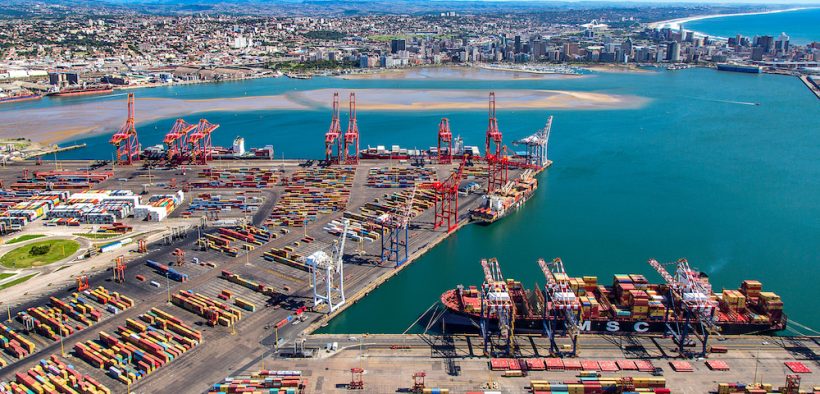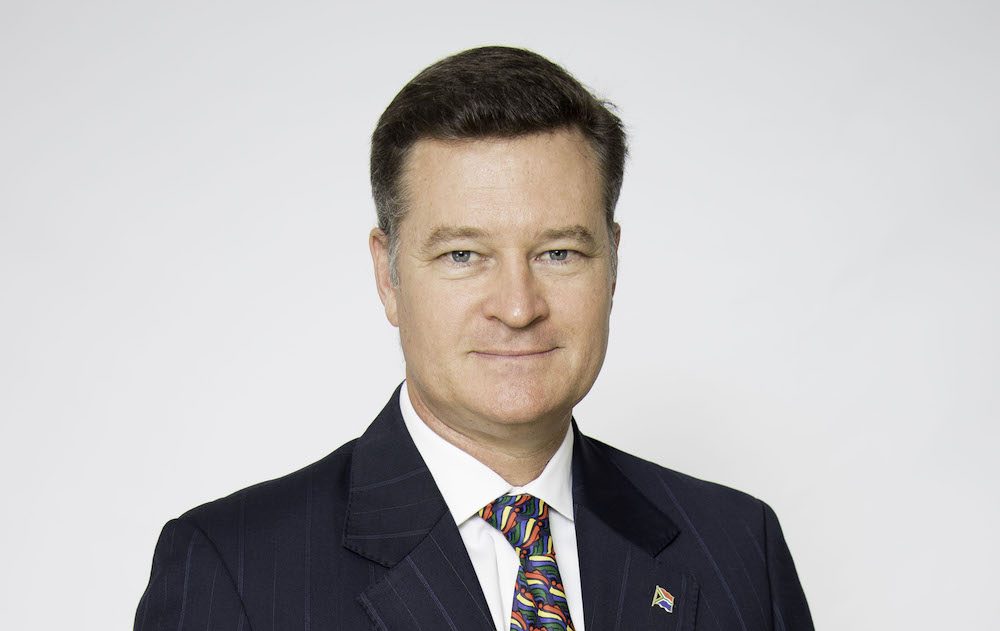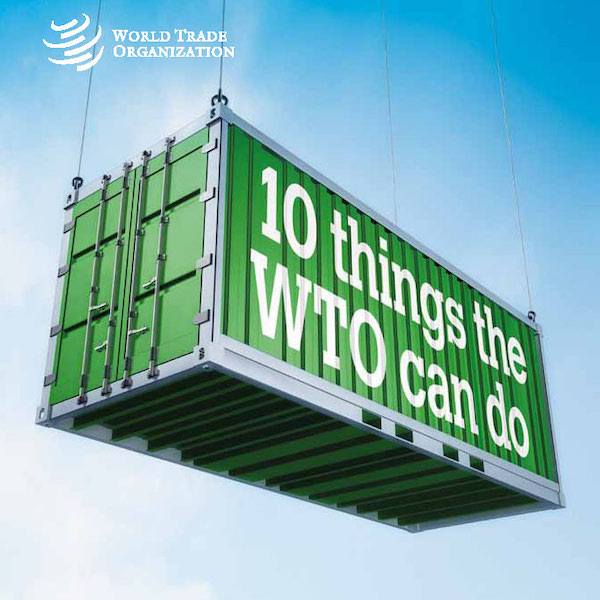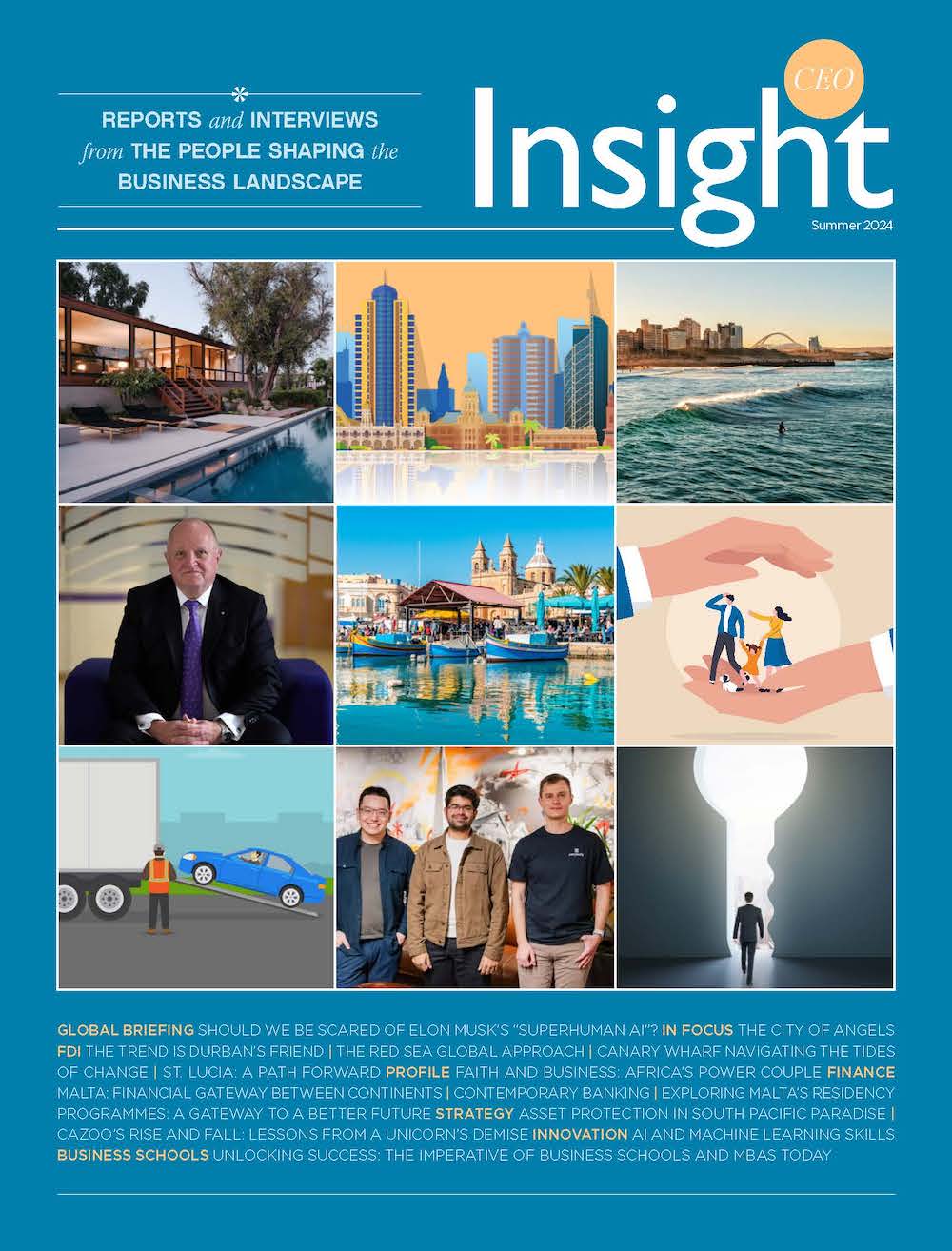The Trend is Durban’s Friend
Share

Durban is the best of Africa, and here, investors will find an unrivalled gateway to markets in South Africa as well as the continent beyond.
Russell Curtis, CEO of Invest Durban recognizes that – like anywhere in Africa – challenges exist, but explains how these are being successfully tackled and addressed by all stakeholders working in concert.
With business and government coming together as never before to craft and implement solutions at pace and scale, the stars are coming into full alignment.
“The trend is Durban’s friend”, he said.
Big business drawn to Durban
In what is a clear ongoing trend, multinationals and larger companies continue to take a strategic view of South Africa and of Durban as one of the top three metropolitan regions within that national space. Socially, economically, infrastructurally, they are taking a multi-decade view of the country and understand that in Africa it is essential to adopt the big picture perspective.
Russell Curtis emphasised the overarching narratives across Africa that are providing a fertile context for such investment: not least, rapid urbanisation, and the African Continental Free Trade Agreement, which is slowly being pragmatised and actualised.
The Invest Durban CEO pointed to Heineken beverages with its multi-billion-rand CapEx investment pipeline as one such example, and to Club Med’s significant investment in the region as another. Furthermore, incumbent international corporate titans Toyota and Unilever continue to reinforce their existing investments, so displaying a faith in the region’s prospects. With multinationals like this constituting the bedrock of global trade, the importance of such backing both materially and in credibility terms cannot be overstated.
Curtis noted that these businesses are thinking regionally and focused on identifying the optimum springboard into the South African market, as well as the SADC (Southern African Development Community) and continental markets beyond. That such well-resourced and informed pillars of global commerce have fixed on Durban speaks volumes as to it having the right cocktail of ingredients.
Public-private solutions
Russell Curtis is part of the push for greater deregulation and public-private partnerships to invigorate and promote competition on the energy and logistics fronts. To that end, logistics parastatal Transnet is now partnering with Philippines port operator ICTSI to manage the Port of Durban’s Pier 2, its biggest container terminal, which handles 46 percent of South Africa’s traffic. Meanwhile, multinationals are investing right on the edge of the port with new warehousing and rail marshalling yards to link in with those improved core port operations. Curtis is also keen to draw investors’ attention to Richards Bay Port, just 2.5 hours along the coast from Durban, which is the largest bulk commodities port in sub-Saharan Africa.
As regards energy, as well as promising developments around utility scale independent power production in the metropolitan region, many companies are investing significantly in their own energy generating facilities and in enhancing energy efficiency.
Russell Curtis sees public-private partnership solutions as one of the keys to unlocking Africa’s vast untapped potential. And in South Africa, more than anywhere else on the continent, business is working with government to create the solutions both it and the country needs.
Already, double digit growth opportunities exist in the contact centre and food and beverage spaces, while the CEO is especially excited about Durban’s investment potential around tourism asset development.
Significant ongoing efforts are being made to present a clear business case to airlines to restore and expand pre-COVID-19 routes into and out of King Shaka International Airport. These outreach initiatives have generated much interest – in particular, from both US and Indian airline groups.
Developments on the ground include Hilton and Radisson international hotel groups having made significant recent investments into Durban, as well as marked progress on the city’s ambition to have its own London Eye. Meanwhile, on the business tourism front, Durban Exhibition Center has again won the prestigious annual award for Africa’s Best Convention Center.
Perceptions and realities

Russell Curtis, CEO of Invest Durban
For Russell Curtis, one of his primary endeavours is helping to address the gap between perception and reality on the part of international markets or international investors.
He believes it is important for South Africa to court and allow itself to be courted by both new powerhouse BRICs countries, so long as the relations it has long enjoyed with its traditional western trading partners continue to be nurtured and developed in parallel. He acknowledges that the perception of late may have sometimes been otherwise.
By way of reassurance to old friends, he sees a recalibration on this front, driven by business impressing upon the three spheres of government the need to recognise the reality of where trade and aid flows, and where it doesn’t.
Regardless of the source market, however, Russell Curtis explained that international investor prospects share a clear understanding that Africa is the last continent of significant growth opportunities going forward. They also all want to know how quickly they can get access to the market following their decision to invest. Invest Durban is on hand to help catalyse that process for them.
Investor concerns exist around there being a sufficiently high skills base, but as with energy and logistics, these are being addressed, and nowhere more so than in Durban.
Curtis pointed to the city having the largest suite of formal public-private partnership industrial clusters on the African continent, providing real and measurable benefits for the respective sectors. These include the automotive, chemicals, textiles and clothing, maritime, footwear, furniture and woodwork clusters as well as the KwaZulu Natal (KZN) contact centre cluster. Each is a legal jointly funded entity with a board of directors drawn primarily from the sector in question, alongside some public sector representation. Part of their role sees them planning and taking a very targeted approach to skills development.
This comes in the form of partnerships with tertiary education institutions – both those within KZN and outside. These include regions like the US, Europe and India, the latter echoing the fact of Durban having the largest Indian city population anywhere in the world, outside India. With India enjoying a very strong technical institute network, this represents a perfect avenue for Durban’s public-private funded clusters to accelerate the very technical skills development investors want to see.
In addition, at a macro level, attendance at universities has been boosted enormously, thanks to a new ‘scholarship’ system which allows for means-tested free tuition. This is not only serving to promote equality of opportunity, but will act to profoundly boost the skills base as these graduates enter the workspace.
View the new Durban Investor report here




























